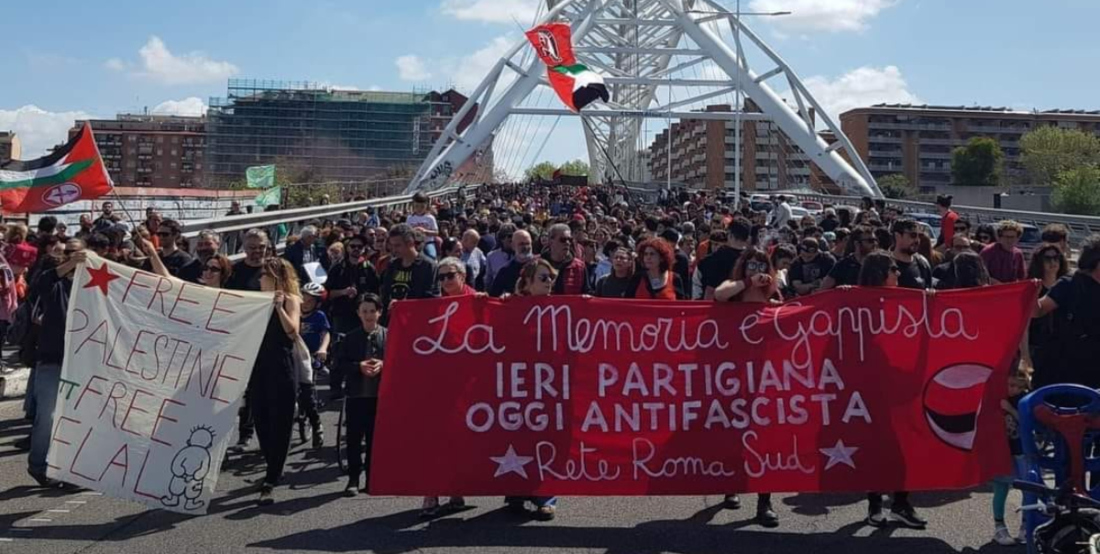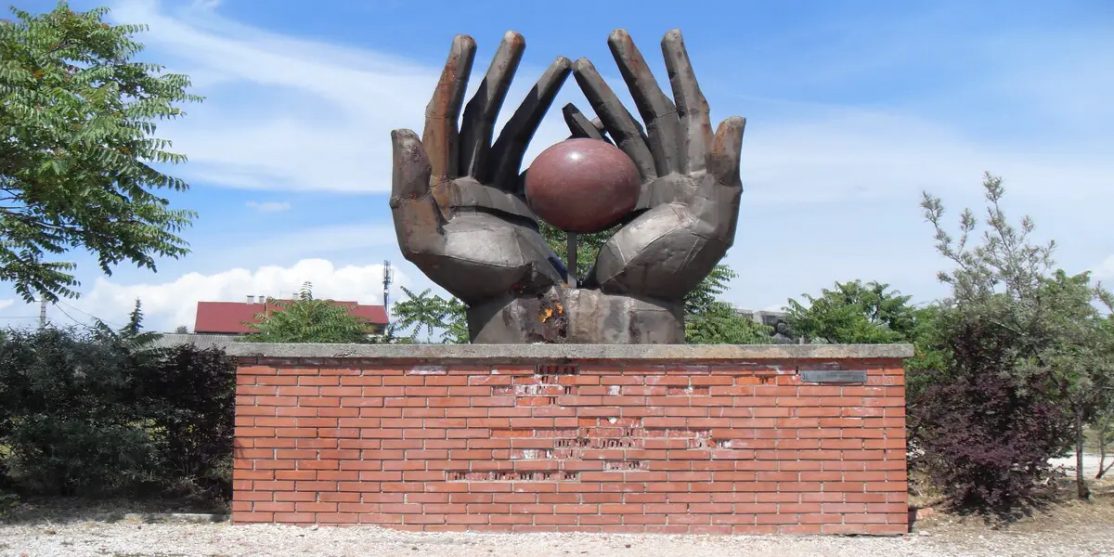ROMA

Genere e minoranze
Un dialogo con Marie Moïse, Lucha y Siesta, Maria Mancuso condotto da Enrica Rigo per riflettere sulle intersezioni fra genere, classe e razza anche alla luce dei “femonazionalismi”
“Difendila dai nuovi invasori. Potrebbe essere tua madre, tua moglie, tua figlia”.
Molti ricorderanno questo slogan: campeggiava in un manifesto realizzato e diffuso da Forza Nuova nell’estate 2017. Nella grafica, l’invasore, ça va sans dire, è nero: la donna, bianca, viene dipinta come indifesa di fronte ad esso, vittima predestinata di una violenza sessuale che certamente si consumerà.
Nella banalità del male di questo slogan sono racchiuse tutte le politiche di discriminazione da sempre ideologizzate e applicate dai partiti fascisti, o rispondenti a tale matrice, verso le minoranze – intese in questo caso come gruppi che differiscono per lingua, cultura o religione – e le donne. Queste ultime, considerate come corpi inermi, di potestà delle figure maschili della famiglia, hanno diritto di esistere soltanto all’interno di una dimensione privata e domestica.
Le nuove destre e i partiti populisti in Europa hanno appreso le lezioni dei loro predecessori ideologici, tanto da riuscire ad orientare, al giorno d’oggi, le politiche di molti stati dell’Unione rispetto alla questione migratoria e dell’accoglienza: nuove ondate di razzismo e xenofobia in nome della necessità di proteggersi da una presunta invasione.
Ma non paghe, le suddette nuove destre sono anche riuscite ad appropriarsi del concetto di femminismo, distorcendolo e strumentalizzandolo al fine di alimentare la retorica secondo cui gli uomini migranti rappresenterebbero un pericolo oppressivo per le donne e per le libertà da esse raggiunte, perseguendo in questo modo i propri fini di diffusione dell’odio verso l’Altro.
Il femonazionalismo, ovvero “l’uso da parte dei partiti di estrema destra della rivendicazione dell’uguaglianza di genere per portare avanti politiche islamofobe e razziste”, nasconde nella realtà la volontà di mantenere inalterata “la catena materiale della produzione e della riproduzione sociale”.
Di fronte ai tentativi vecchi e nuovi di affossamento dei diritti civili e politici di donne e minoranze, dura e continua è però la resistenza quotidiana di una moltitudine di soggetti e realtà femministe e antirazziste. La libertà è una lotta costante, ha scritto Angela Davis, e mai ce lo dimentichiamo.
Servizio Civile Internazionale Italia e DINAMOpress vi invitano – nell’ambito del progetto “Chapter-Challenging Propaganda Through Remembrance” – a un incontro in cui affronteremo il tema della narrazione femonazionalista e le pratiche di resistenza femminista e antirazzista presso il CSOA La Strada con:
Marie Moïse (attivista e dottoranda in filosofia politica)
Lucha y Siesta (Casa delle Donne)
Maria Mancuso (co-autrice del podcast “Sulla Razza” – www.sullarazza.it)
Modera: Enrica Rigo (professoressa associata di filosofia del diritto); sarà disponibile traduzione italiano-inglese a cura di Himasha Weerappulige.
Ricordiamo che per accedere all’evento è necessario avere il green pass.
Gender and minorities: the exploitation by the old and new rights on the body of women and migrants
“Defend her from the new invaders. She could be your mother, your wife, your daughter ”.
Many will remember this slogan: it stood out in a poster created and distributed by Forza Nuova in the summer of 2017. In the graphics, the invader, ça va sans dire, is black: the woman, white, is painted as defenseless in front of it, victim predestined of a sexual violence that will certainly be consummated.
The banality of the evil of this slogan contains all the policies of discrimination that have always been ideologized and applied by the fascist parties, or corresponding to this matrix, towards minorities – understood in this case as groups that differ in language, culture or religion – and women.
The latter, considered as defenseless bodies, under the authority of the male figures of the family, have the right to exist only within a private and domestic dimension.
The new right and populist parties in Europe have learned the lessons of their ideological predecessors, so much so that they are now able to guide the policies of many states of the Union with respect to the migration and reception issue: new waves of racism and xenophobia in the name of the need to protect themselves from an alleged invasion.
But not paying, the aforementioned new rights have also managed to appropriate the concept of feminism, distorting it and exploiting it in order to feed the rhetoric according to which migrant men represent an oppressive danger for women and for the freedoms they have achieved, pursuing in this way their own ends of spreading hatred towards the Other.
Femonationalism, that is “the use by far-right parties of the demand for gender equality to carry out Islamophobic and racist policies”, hides in reality the desire to keep unchanged “the material chain of production and social reproduction” .In the face of old and new attempts to undermine the civil and political rights of women and minorities, however, the daily resistance of a multitude of feminist and anti-racist subjects and realities is hard and continuous. Freedom is a constant struggle, wrote Angela Davis, and we never forget it.
International Civil Service Italy and DINAMOpress invite you – as part of “Chapter-Challenging Propaganda Through Remembrance” project – at a meeting in which we will address the theme of the femonationalist narrative and the practices of feminist and anti-racist resistance at the CSOA La Strada with:
Marie Moïse (activist and PhD student in political philosophy)
Lucha y Siesta (House of Women)
Maria Mancuso (co-author of the podcast “Sulla Razza” – www.sullarazza.it)
Moderator: Enrica Rigo (associate professor of philosophy of law); Italian-English translation will be available by Himasha Weerappulige.
We remind you that to access the event it is necessary to have the green pass.




